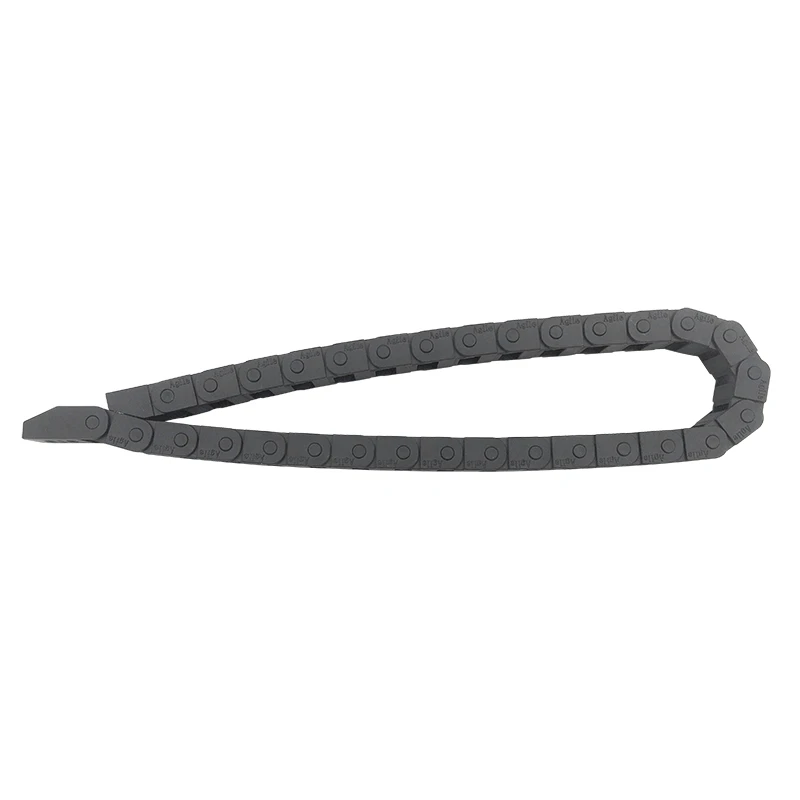miniature cable carrier
Understanding Miniature Cable Carriers An Essential Component for Modern Machinery
In today’s fast-paced industrial landscape, efficiency and reliability are paramount. One often overlooked but crucial component in a variety of machinery is the miniature cable carrier. These small yet highly efficient devices facilitate the movement of power, data, and fluid lines in automated systems, ensuring smooth operation and reduced wear on cables and hoses. This article delves into the various aspects of miniature cable carriers, their applications, benefits, and innovative designs that cater to the needs of modern machinery.
What Are Miniature Cable Carriers?
Miniature cable carriers, also known as energy chains, are mechanical components designed to house and guide cables and hoses during movement. Unlike traditional cable management systems, miniature carriers are specifically engineered for compact spaces and lightweight applications. They consist of a series of interlinked links or segments that create a flexible channel, allowing cables and hoses to move freely along a predetermined path without tangling or suffering from abrasion.
Applications of Miniature Cable Carriers
Miniature cable carriers are widely used across numerous industries, including automation, robotics, medical technology, and more. They are particularly prevalent in situations where space is limited and movement is dynamic.
1. Robotics In robotic applications, compact cable carriers are essential for guiding power and control cables. As robots perform complex movements, miniature carriers assist in maintaining cable integrity, preventing wear and ensuring reliable operation.
2. Medical Devices In the medical field, devices such as MRI machines and surgical robots rely on miniature cable carriers to manage their intricate wiring systems. These carriers ensure that sensitive cables remain protected during operation, crucial for maintaining safety and device functionality.
3. Industrial Automation In automated assembly lines, miniature cable carriers are used to connect various machinery components, enabling synchronous operation while managing space efficiently.
4. Aerospace and Automotive In the aerospace and automotive sectors, robust yet lightweight cable management is necessary to enhance performance while minimizing weight. Miniature cable carriers provide an ideal solution for managing complex electrical and fluid connections in these industries.
Benefits of Miniature Cable Carriers
miniature cable carrier

The adoption of miniature cable carriers comes with several notable benefits
- Space Efficiency Their compact design allows for the management of cables in tight spaces, which is often a requirement in modern machinery and equipment.
- Durability Made from high-quality materials, miniature cable carriers are designed to withstand everyday wear and tear. They offer resistance against harsh environmental conditions, including extreme temperatures, chemicals, and moisture.
- Flexibility Miniature cable carriers can accommodate a variety of cable sizes and shapes, allowing for customization in various applications. They can also bend and rotate without affecting the integrity of the cables contained within.
- Reduced Maintenance By protecting cables from friction and mechanical stress, these carriers significantly reduce the frequency of maintenance tasks, thereby lowering operational costs and downtime.
Innovative Designs and Future Trends
As technology continues to evolve, so does the design of miniature cable carriers. Manufacturers are now incorporating advanced materials such as lightweight composites and flexible polymers to enhance performance without compromising durability. Some are even exploring modular designs that allow for easy configuration and installation.
Additionally, the rise of the Internet of Things (IoT) and Industry 4.0 has spurred the development of intelligent cable carriers equipped with sensors. These smart carriers can provide real-time monitoring of cable conditions, alerting operators to potential faults before they escalate into serious issues.
Conclusion
Miniature cable carriers play a crucial role in the operation of a wide range of modern machinery and systems. Their compact, flexible designs make them indispensable in environments where space and reliability are of utmost importance. As industries continue to evolve and demand more sophisticated solutions, the importance of miniature cable carriers will only grow. Understanding their role can lead to better design choices and improved machinery performance, ultimately contributing to enhanced efficiency and reliability in various industrial applications.








